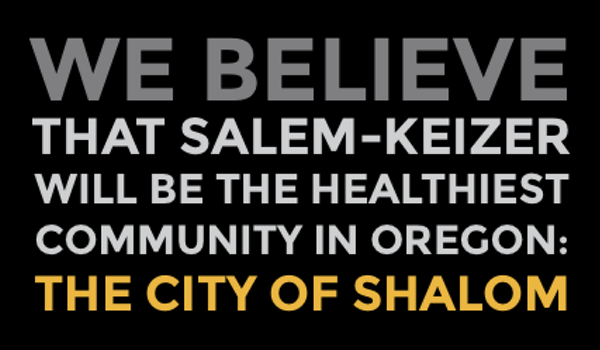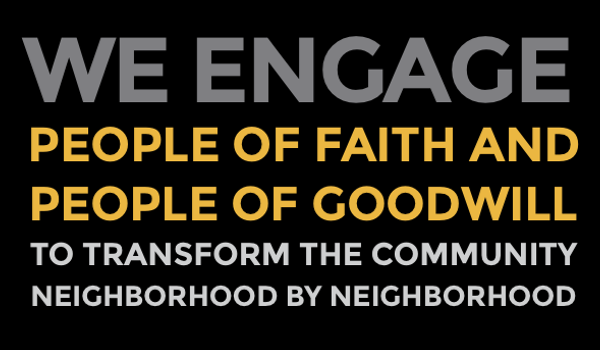Years ago an activist from a nonprofit in Portland came to visit. He’d heard about SLF and the effectiveness of our work in Salem-Keizer. He wanted me to share two things: 1) SLF’s political agenda, and 2) our ‘secret recipe’ for effectiveness. For nearly an hour we went around in circles. I kept telling him we were not a political organiza-tion. He kept telling me “everything is political” and, with SLF smack in the middle of the state’s capital city, we were obligated to advocate for the poor in the halls of the Capitol building.
“How many marches have you organized? How many bills have you drafted? How many legislators do you lobby each week?” The answer to all three questions: zero. He was starting to make me feel inadequate; perhaps SLF wasn’t working hard enough for justice and equality? And then it popped out of my mouth. “What a minute—yes!—SLF does have a political agenda,” I blurted. “We encourage people to practice, and then preach.” 
Both of us thought I said it wrong. “You mean, help people practice what they preach, right.” No, I stumbled, starting to comprehend what I had just said. “At SLF we encourage people to practice—to serve and love others, especially the poor and vulnerable. When people love neighbor as self, their opinions and their politics will flow from their practice. Practice, then preach.”
He liked it. But he didn’t get it. “Ah, that’s good, really good. And of course you want everyone to preach Democrat and progressive, correct?” No! Whichever way a person feels called to advocate is just fine. Many will speak out more conservatively, many will speak out more progressively. That’s the beauty of it—if people actually serve, over time, through relationships … the legitimacy of their advocacy will be strong. Advocacy without personal experience feels good but is fleeting.
And that’s the answer to the second question. I wouldn’t really call it a ‘secret recipe’ since a) it’s been freely available to everyone for eons, and b) SLF never hogs something to itself. So here goes: Show up and stick with it. Pretty simple. Mentor a student. Join the parent club or the neighbor-hood association. Engage the homeless, the addicted, the incarcerated. Coach. Join boards and committees. Whether you’re more of a leader or more of a servant, the pathway is the same: love your neighbor, build relationships over time, and don’t bogue out. Show up, and stick with it.
This answer may seem old-fashioned. But in a social-media age that’s all about immediacy, volume and ego, showing-up-and-sticking-with-it is actually revolutionary. Counter cultural. Radical. Kinda like the guy who showed us the way 2,000 years ago. 
